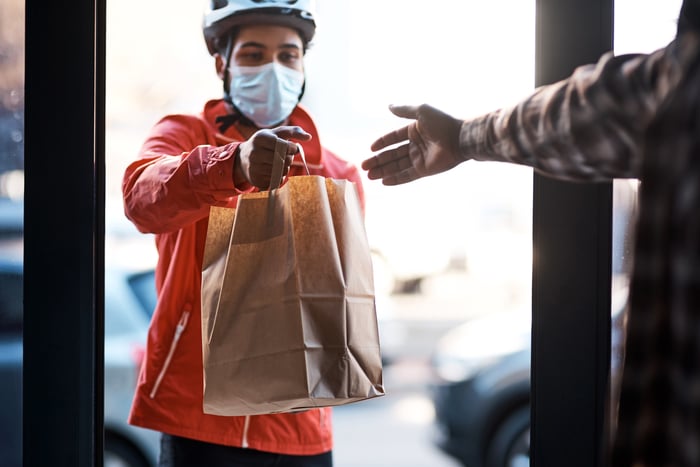Although many businesses have recovered from the blow the pandemic dealt them, restaurants are still struggling two years after the fact. The amount of revenue restaurants lost in 2020 was catastrophic for some establishments -- namely, those with already thin margins before the start of the outbreak. And while it's been many months since restaurants faced operating restrictions like capacity limits, more recently, they've encountered new challenges like difficulty procuring the products they need and hiring workers.
But if restaurants don't manage to recover fully from the pandemic and secure their spots as community mainstays, it could have a dire impact on local real estate markets. Thriving restaurants can lend to higher property values, while shuttered businesses -- restaurants included -- can cause property values to plummet. As such, real estate investors stand to lose out big time if restaurants start dropping like flies two years into the COVID-19 health crisis.

Image source: Getty Images.
To keep going, though, many restaurants need a financial lifeline. And one food delivery service may soon come to the rescue.
Giving restaurants the capital they need
During the pandemic, restaurants relied heavily on food delivery to stay afloat. So, partnerships with delivery apps like DoorDash (DASH -0.83%) have been invaluable.
Now, DoorDash is going one step further to help ensure that restaurants can keep operating. It's launching a financial arm called DoorDash Capital to make business loans available to restaurants in need.
Restaurants in need of capital will be able to apply for loans through DoorDash to pay for everything from rent to equipment to staff wages. And DoorDash will work with restaurants individually to establish a repayment plan based on their revenue.
Buying itself some goodwill
Although DoorDash's food delivery service is essential for restaurants, it comes at a steep cost. In fact, the relationship between restaurants and delivery apps has long been complicated because while companies like DoorDash undoubtedly help food establishments thrive, the hefty fees they charge can eat heavily into restaurants' profits. By launching a financing arm, DoorDash could end up buying itself a degree of goodwill at a time when restaurants may be exploring alternate food-delivery arrangements.
But to be clear, helping restaurants stay in business benefits DoorDash, too. The more food establishments that are forced to shutter due to financial constraints, the more partnerships DoorDash loses itself. So, this new venture could, ultimately, be a beneficial one for DoorDash and restaurants alike.
It's also something real estate investors should be happy about. Restaurants play a pivotal role in establishing and maintaining local property values. Making it possible for them to stick around can benefit investors in both commercial and residential spaces.
Keeping restaurants in business could also help commercial landlords avoid a massive vacancy crisis. Many small businesses have shuttered permanently in the course of the pandemic, leaving landlords with leasing space to fill. The easier it becomes for restaurants to stick around, the less hassle and loss of income landlords will be forced to deal with.


